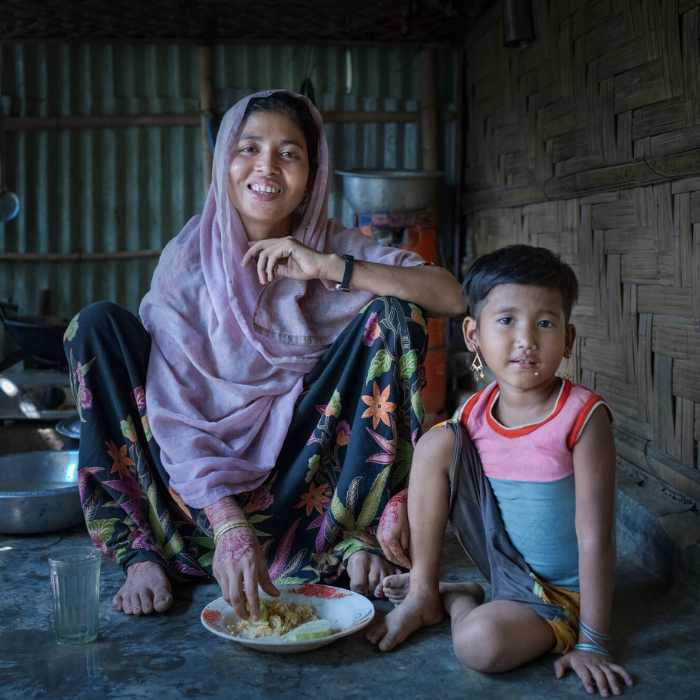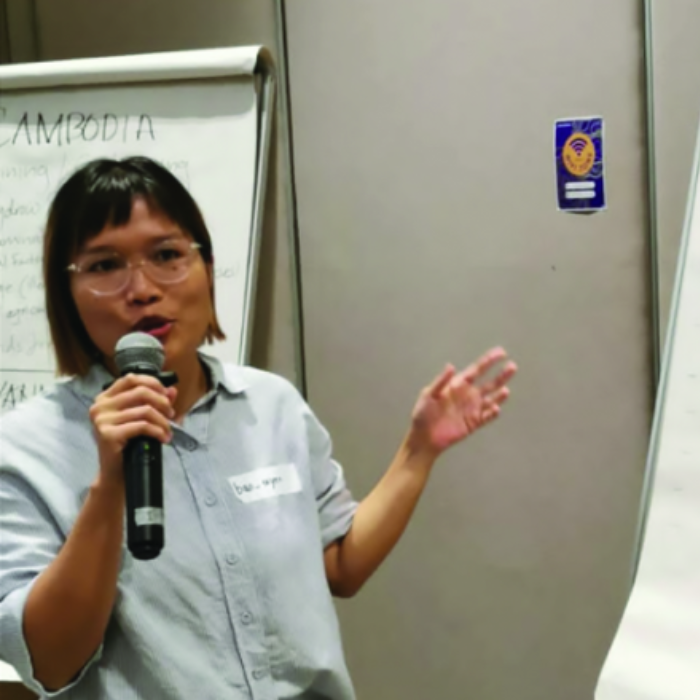An equal future
All too often, women, girls, and people of diverse genders and sexual orientation are denied their equal rights. They do the majority of unpaid care and domestic work; and violence against women, girls, and people of diverse genders and sexual orientation remains one of the world’s most common human rights abuses.
With a global team of allies, partners and supporters, we’re changing this at a local level.
We’ll keep going until the future is equal for everyone.
people were supported through our work to ensure equal rights, opportunities, and freedom from violence and discrimination for all, regardless of gender or sexual orientation.

Real lives: Meet Bao Uyen in Vietnam

“I feel more confident after each round of training and mentorship ... I [am] striving to bring the voices of women and vulnerable groups into my stories.”
The Mekong is one of the world’s fastest-growing economic regions, and there is mounting pressure to ensure that development is equitable and sustainable. The Mekong and Salween rivers are the lifeblood of the region, providing livelihoods, food security and cultural heritage for more than 70 million people. Yet the flow and quality of the waters is being depleted by major projects, pollution and climate change.
Indigenous people, forest and riverine communities and those living downstream — particularly women and girls — are experiencing the greatest loss through negative economic, environmental, social and cultural impacts.
To give visibility to the unique perspectives of women in water governance, Oxfam is working with the Earth Journalism Network to strengthen the capacity of local journalists and foster networking opportunities for women in the region. The program includes workshops, mentorship and a reporting fund to empower journalists to produce inclusive stories about water issues.
Journalists like Vo Kieu Bao Uyen from Vietnam, who has dedicated her career to reporting gender, environment, labour and migration issues, are amplifying the voices of local groups and promoting informed discussions.
“As a child, I was taught that the Mekong River was incredibly rich, but it has undergone significant changes over the years. I aim to shed light on these untold stories and provide an explanation of the real environmental situation in Vietnam,” she said.
Bao Uyen attended some of the program’s workshops.
“The gender-related content presented by the speakers was particularly engaging and informative, providing me with a better understanding of gender lens not only in water governance but also in environmental matters more broadly.
“I feel more confident after each round of training and mentorship,” Bao Uyen said. “I [am] striving to bring the voices of women and vulnerable groups into my stories.”
ABOUT THE PROJECT
The Inclusion Project Phase 2 is part of Oxfam’s Mekong Regional Water Governance Program.
We are continuing to support local communities in the Mekong area in Cambodia, Lao PDR, Myanmar, Thailand and Vietnam, to engage in the decisions that affect their water resources.
In particular, we focus on women as leaders, and on policy dialogue that includes local people and civil society. Oxfam acknowledges the support of the Australian Government through the Australian NGO Cooperation Program (ANCP).
OUR LOCAL PARTNERS
The project works with 31 civil society partners including the Earth Journalism Network. It works with 12 networks of various actors across five countries and at the regional level to engage in inclusive water governance and renewable energy-related platforms.
HIGHLIGHTS FOR 2023–2024
More than 4,000 women representatives, civil society organisations, private actors, government officials and academics have strengthened their water governance leadership skills to voice their views on water governance and renewable energy at local, national and regional forums. The project supported 12 civil society networks across five countries to influence policy makers at local, national and regional levels, including the Thai Government’s proposed water diversion schemes in the Salween and Mekong basins.